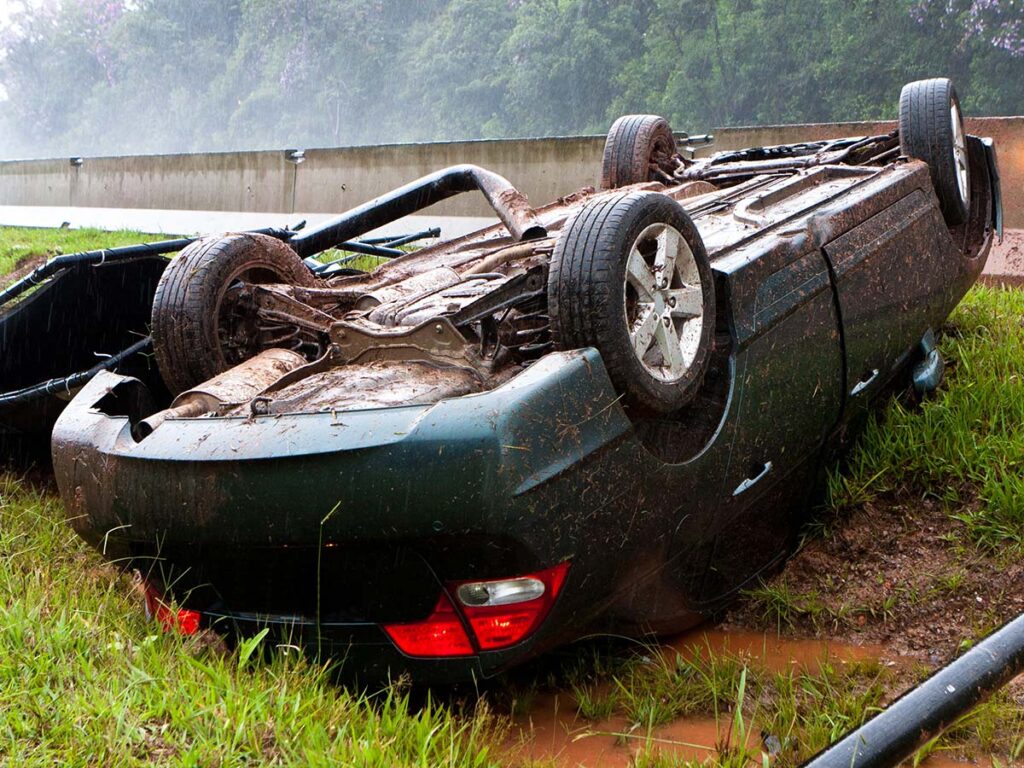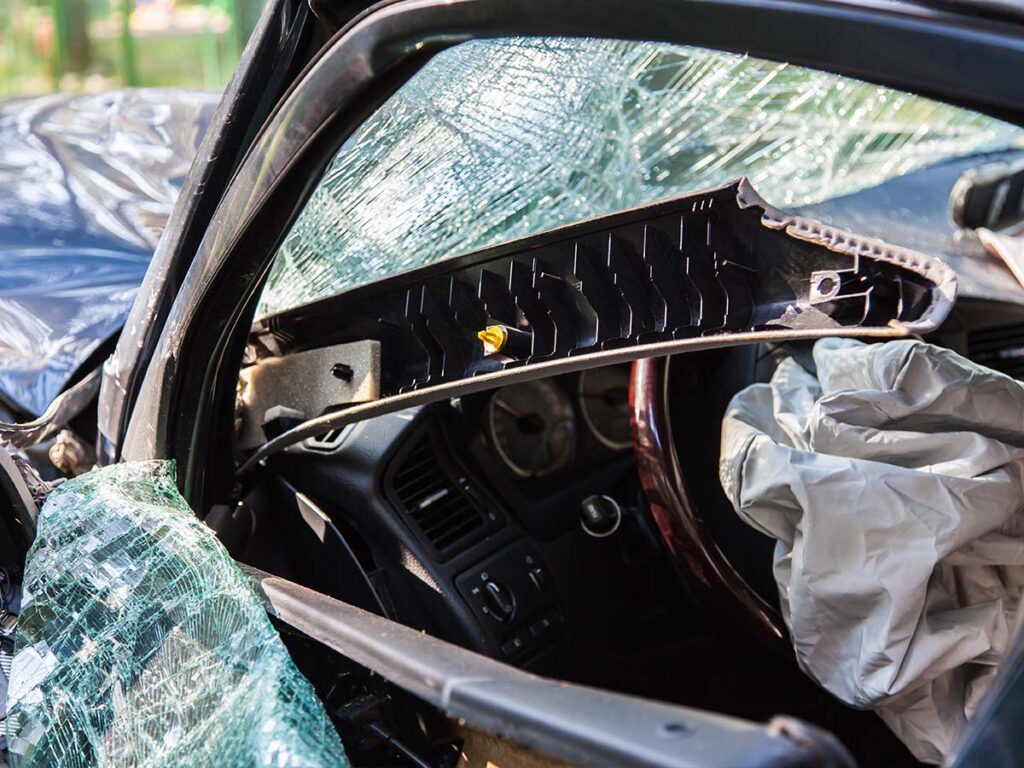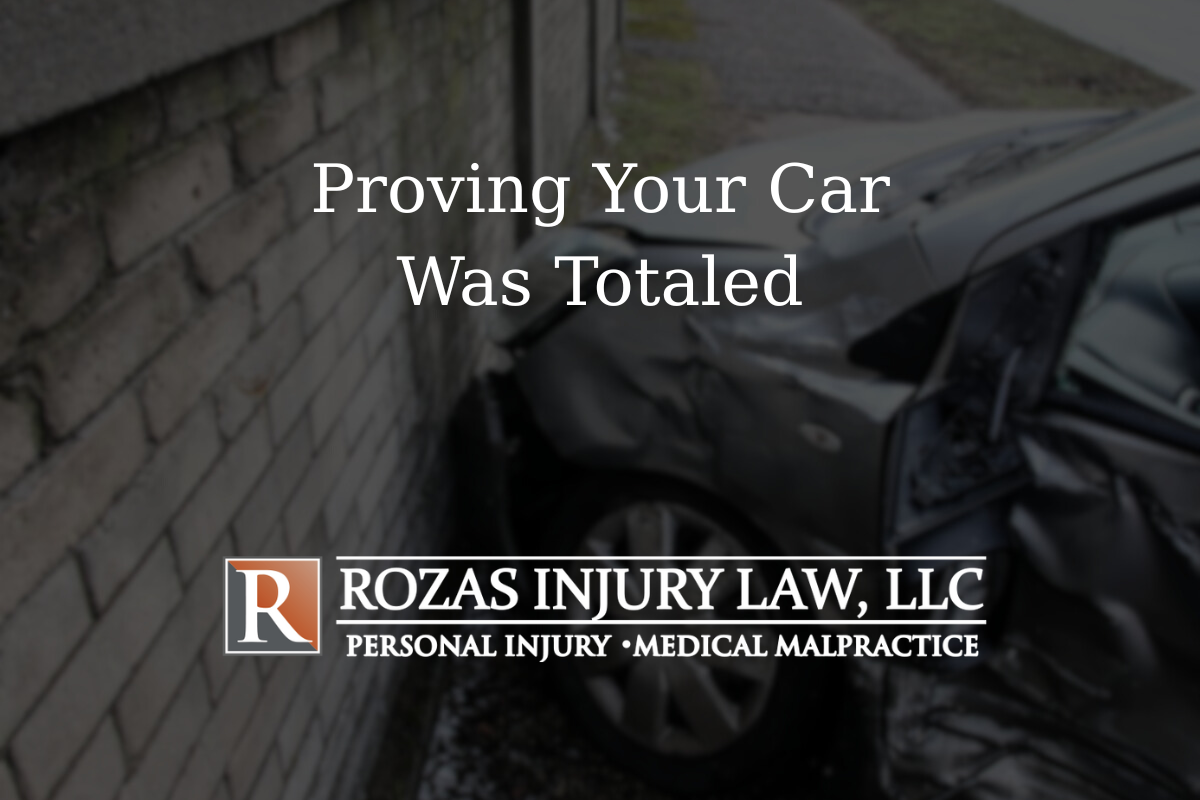Understanding How Insurance Companies Determine a Total Loss
When a car is involved in a car accident, the insurance company will assess whether it can be repaired or if it is considered a total loss. If the repair costs exceed a certain percentage of the car’s fair market value, the car is totaled. However, disputes often arise over the insurance company’s valuation, leaving vehicle owners uncertain about how much they should receive.
This guide explains how to prove your car was totaled, how insurance companies determine actual cash value, and what steps to take if you disagree with an insurance company’s offer.

What Does It Mean When a Car Is Totaled?
A car is considered a totaled vehicle when the cost to repair it is higher than a set percentage of its market value. This percentage varies by state law but typically falls between 50% and 80%.
For example, if your car’s market value is $15,000 and repairs would cost $10,000, your insurance provider may declare it a total loss instead of approving repairs.
How Insurance Companies Determine a Total Loss
Evaluating the Car’s Actual Cash Value
Insurance companies use the actual cash value of a totaled car to determine how much they will pay. The vehicle’s actual cash value is calculated by considering:
- The car’s market value before the accident
- Current market value based on listings for similar vehicles
- Fair market value using sources like Kelley Blue Book
- The resale value of the totaled vehicle
- Any recent repairs or upgrades that may increase its worth
Comparing Repair Costs to Market Value
If repair costs exceed a certain threshold, the insurance company will declare the car totaled instead of covering the repairs.
For example, if the car’s market value is $12,000, and the repair estimate is $9,500, it may be deemed a total loss because the repair costs are too high compared to the vehicle’s market worth.
Factoring in Salvage Value
The insurance company’s assessment will also consider the salvage value, which is the amount the totaled vehicle could be sold for in its damaged condition. The insurance payment is usually calculated as:
actual cash value – salvage value = insurance company pays
The Role of Gap Insurance
If you have an active car loan, you may still owe money even after the insurance company pays the actual cash value of the car. Gap insurance covers the difference between what you owe and what the insurance provider offers.
For example, if you owe $18,000 on your car loan but the insurance claim only pays $15,000, gap insurance can cover the remaining balance.
What to Do If You Disagree With the Insurance Company’s Valuation
Review the Insurance Company’s Initial Offer
Insurance companies may offer less than the car’s actual cash value, so it’s important to check their valuation against market prices.
Gather Evidence to Prove Your Car’s Worth
If you believe your insurance company’s offer is too low, gather evidence such as:
- Listings of similar vehicles in your area
- The Kelley Blue Book value
- Receipts for recent repairs or upgrades
- A second repair estimate from a trusted mechanic
Negotiate for a Fair Settlement
If the insurance company’s valuation is too low, you can negotiate for a higher value by providing proof of the car’s fair market worth. A skilled attorney can assist with the claim process if necessary.
Consider Legal Action If Negotiations Fail
If the insurance company refuses to offer a fair settlement, you may need legal support. An experienced lawyer can help you challenge the insurance company’s offer and ensure you receive the compensation you deserve.

Contact an Experienced Attorney Today
If your car was totaled and you are struggling to receive a fair settlement in Louisiana, don’t wait to take action. Call Rozas Injury Law, LLC at (225) 343-0010 to schedule your free consultation. Let us help you get the compensation you deserve.
FAQ
How does an insurance company decide if my car is totaled?
They compare the car’s actual cash value to the estimated repair costs. If repair costs exceed a certain percentage of the market value, they may declare the car a total loss.
Can I dispute the insurance company’s valuation?
Yes, if you believe the offer is too low, you can present evidence such as recent repairs, market listings, and a second repair estimate.
What happens if I still owe money on my car loan?
If the insurance payout does not cover your remaining balance, gap insurance may help cover the difference.
What if I need a replacement car?
If you have rental car coverage in your insurance policy, your insurer may cover a temporary replacement while you search for a new vehicle.
Can a lawyer help if my insurance claim is denied?
Yes, an experienced attorney can negotiate with the insurance company or take legal action if necessary to help you secure a fair settlement.




